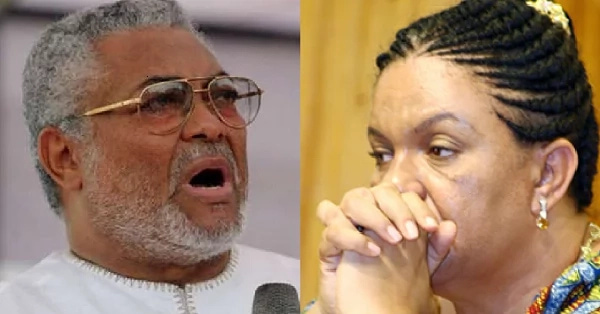“This EPA is not imposed on us by the European Union (EU)” Hannah Tetteh
- Posted on
- Comment
 Government has dismissed claims that the European Union (EU) is imposing the signing of the Economic Partnership Agreement (EPA) on Ghana.
Government has dismissed claims that the European Union (EU) is imposing the signing of the Economic Partnership Agreement (EPA) on Ghana.
Setting the stage for the debate and decision on whether or not Ghana should go ahead and sign the EPA, Minister of Foreign Affairs and International Relations, Hannah Tetteh said Ghana is not obliged and forced to sign the agreement
“…this EPA is not imposed on us by the European Union (EU), if we don’t want to have duty free access we can move on to the general system of preferences, but if we want to have it, then we need an EPA and we should approach this discussion from that viewpoint, she stated.
According to her, the choice for Ghana is either to move onto the EPA or to move on to the Generalized System of Preference (GSP).
She also revealed that Ghana, Cote D’Ivoire and Nigeria had to discontinue export to the EU when the non-reciprocal duty free-quota free access ended in 2007.
Ghana, she said is among the countries that are not classified as least developed and therefore, could not continue to export to the EU market under the Everything but Arms Agreement.
She said the final agreement is the ECOWAS EPA adding that it is the interim EPA that allowed and kept business in Ghana to export duty free to the EU market.
“Our view as a government has always been that the because the interim agreement was meant to be an interim agreement, we should emphasize the negotiation of an ECOWAS agreement and do everything possible to make that ECOWAS agreement come to past so that we would be in the position to benefit from a regional EPA as opposed to a country specific EPA,” she noted.
According to Ms Tetteh, the reason for the delay of ECOWAS to make a decision is because, “it was difficult for the group to make a market access offer. Difficult because 15 member states with different tariffs for different products will obviously find it difficult to make an offer to the EU that says we are going to liberalize these particular tariff lines over a period of time.”
She concluded by saying, “…a lot of people in the non-traditional export sector built up their businesses on the back of duty free access to the EU.”
The EPAs are legally binding bilateral contracts between the European Union (EU) and individual African countries.
Once signed, EPAs warrant that within two decades, about 80% of that country’s market should open to European goods and services tariff-free.
The European Parliament has granted the African countries an extension until October 2014 to ratify their interim EPAs.
By: Evans Effah










 (Selorm) |
(Selorm) |  (Nana Kwesi)
(Nana Kwesi)